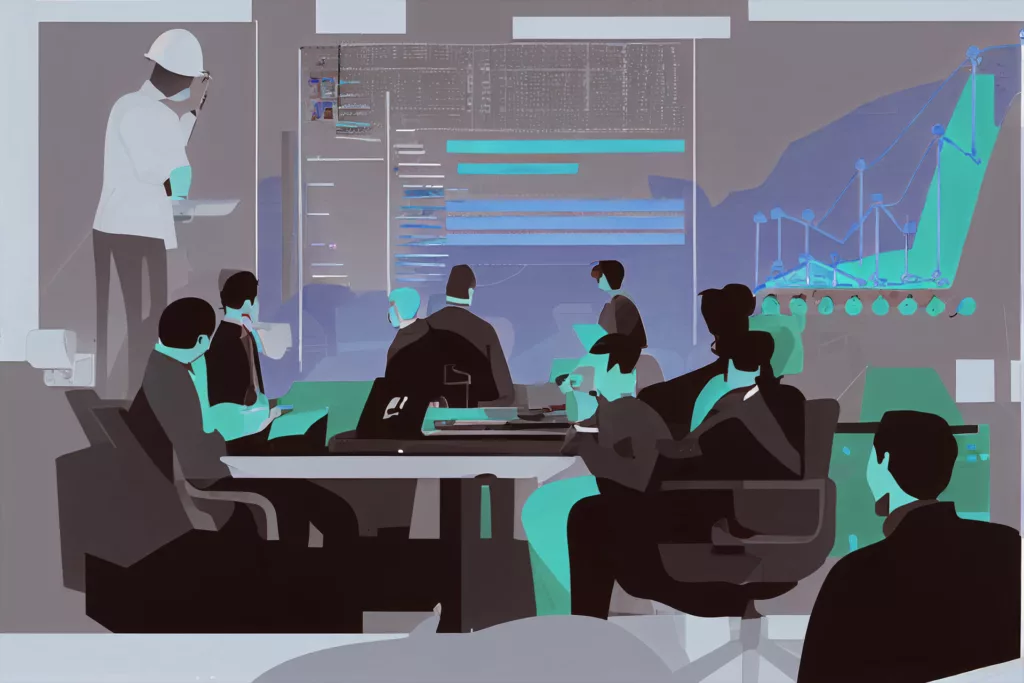
The Future of Manufacturing: Digital Transformation
Digital transformation is changing the manufacturing industry. It enables companies to increase productivity, make data-driven ...

Advanced Analytics in Manufacturing: How It Compares to Operational Analytics
The interest in and application of industrial analytics has grown rapidly in recent years. This ...

Mastering Operational Reviews: a Guide to DORs, WORs, & MORs
Reviewing operational data and KPIs is important for daily operations and communication with management. By ...

Building Effective Manufacturing KPI Dashboards and Reports
Graphical dashboards are a great way to display information to a wide audience. By building ...

Process Engineering Software: 13 Super Useful Tools
In this article we will explore common types of process engineering software and highlight some ...

Manufacturing KPI Formulas: Examples to Measure Manufacturing & Production Efficiency
There are numerous KPIs available for tracking production and manufacturing performance. In this article, we ...

5 Effective Ways to Reduce Downtime in Manufacturing
Reducing downtime increases productivity, lowers costs, and decreases accidents. Downtime tracking software can be utilized ...

Real-Time Gap Tracking Systems for Manufacturing
Go beyond a typical gap analysis with a real-time gap tracking dashboard. Minimize manufacturing gaps ...

Data Historian vs. Time Series Database
Both established operational data historians and newer time series databases continue to evolve and add ...

Developing Effective Manufacturing Operations Management Systems
Manufacturers use a variety of tools and systems every day to manage their production process ...

How to Perform a Manufacturing Gap Analysis
Minimize manufacturing gaps such as operational cost or waste by performing a gap analysis with ...

Time-Series Database vs. Relational Database vs. Data Lake
The most important differences between relational databases, time-series databases, and data lakes and other data ...

13 Essential Manufacturing KPIs for Continuous Improvement
KPIs are a powerful tool for manufacturers to drive continuous improvement and promote process efficiency. ...

IT/OT Convergence in Manufacturing
IIT/OT Convergence and corresponding buzzwords are all over the place. If you are in manufacturing, ...

Best Pi ProcessBook Alternatives [2026]
Now that PI ProcessBook is headed toward extinction, many engineers & operators in the process ...

How to Implement 5 Whys Root Cause Analysis in Manufacturing
One of the easiest ways to explain why you should implement 5 whys root cause ...

dataPARC vs PI
In the process industries, optimization is the key to efficiency. And efficiency is what leads ...

Digital Transformation Roles and Responsibilities in Manufacturing
Where do we start in digitizing our manufacturing operations? one may ask. While there is ...

Integrating Manufacturing Data: 6 Combos for Process Analysis
Integrating big data in manufacturing is necessary for many reasons. Among the most important is ...

Stages of Digital Transformation in the Process Industry
The stages of digital transformation in the process industries is part of a global shift ...

Predictive Modeling in Manufacturing: PLS vs PCA
Predictive models are extremely useful in monitoring and optimizing manufacturing processes. Predictive modeling in manufacturing, ...

Deviation Analysis in Process Manufacturing
Deviation analysis is a routine form of troubleshooting performed at process manufacturing facilities around the ...

Five Reasons You Should Attend dataPARC’s Virtual Conference
1. You Won’t Have To Take Any Time Off To Attend We are happy to ...

Data Analysis Basics: Uncovering the Impact of Covid-19
How Does Information Answer Questions? Does the information you find always answer the right questions ...

Anomaly Detection for Time Series Data
One of the problems in process manufacturing is that processes tend to drift over time. ...

Covid-19: How to Support Manufacturing Operations Remotely
If you’re like us, you’ve likely been sent an email or told in meetings that ...

HMI Design Best Practices: The Complete Guide
Most modern manufacturing processes are controlled and monitored by computer based control and data acquisition ...
